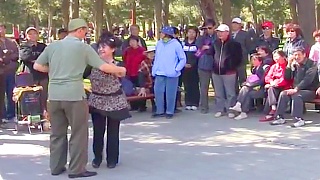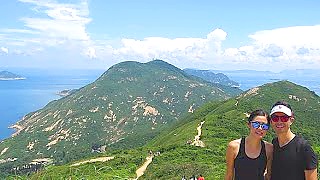
|
10 word summary : eat real (natural / unprocessed) food; be active; relax; be kind / appreciate.
The 'low fat (low saturated fat) diet' has led to increased disease and early mortality.
Real food - including, eggs, meat and dairy was replaced by highly processed toxic foods such as margarine, 'vegetable' oils, and refined grains. A recipe for disaster.
Over the last 100 years, cancer went from rare to common; same with heart disease, diabetes, arthritis, poor eyesight and degenerative brain disorders (these are all symptoms, not really diseases). Especially from the 1950s / 60s. So why ?
In short, increasing amounts of processed foods; though pollution, tobacco and alcohol also played a part. In particular, the cause of the increased incidence of disease was the adoption of the 'low fat diet' dogma, that allowed cheap, but nasty, 'food' to be made from 'vegetable' oils, plus sugar and refined carbohydrates (and a large variety of additives, such as artificial sweeteners and preservatives).
The big two culprits are :
*** 1) 'vegetable' (seed and bean) oils - sunflower, canola / rapeseed, corn, etc. These oils are highly processed, very unstable (easily oxidise and degrade) and are pro-inflammatory (omega-6).
Note that extra virgin olive oil is not a vegetable oil, and is un-processed. Saturated fats are not a problem. Neither is cholesterol - so essential to life that every cell can make it; and if they didn't, we'd die. It is needed by the brain, for making vitamin D and other hormones, and much, much more.
The problem isn't too much fat; the problem is eating the wrong fats. Don't think 'low fat', think 'good fat'.
Good fats include fish oil / cod liver oil (choose a good one), EVOO, butter / ghee, coconut oil.
*** 2) sugar and refined carb.s - bread, cakes, biscuits, pastries, colas, fruit juices, etc. These easily overload metabolism leading to fatty liver, weight gain and many other disturbances. Even whole-grains are not a good source of nutrition and have anti-nutrients (vegetables are where to get fiber, not grains).
Sugar and refined carb.s are addictive - the more you eat, the more you want.
Real food is the answer.
Rather than managing symptoms, we need to fix the root problem.
Avoid processed foods, also known as fake 'foods'.
Real foods include non-starchy vegetables (arugula, broccoli sprouts, garlic, tomato, onion, ...), meat (not the preserved type) and wild fish, some whole fruit (berries, avocados), nuts, eggs, cream, kefir; sauerkraut; kimchi. Small amounts of rice and pasta and potato may be okay for some people. High potassium 'lo salt'. Herbs and spices. Tea and coffee (unsweetened). The more variety, the better.
The microbiome in the gut is a key to health, and it needs real food. Start the regeneration.
The liver, in particular, but all the digestive system, and ultimately every part of the body, hates highly processed foods. End the poison. Kefir and sauerkraut can help.
Carnivore ? Vegan ?
The important thing is to avoid processed 'food', especially sugar, refined carb.s and 'vegetable' oils. Yet going to either extreme is far from ideal. Healthy keto would be a good choice, and maybe semi-keto for some. Variety. Quality (grass-fed, organic, etc.).
Animal foods for high quality protein and good fats; vegetables for fiber and their many phytonutrients (and feeding the gut microbiome).
Vegetarian ? Don't rely on fake 'meats' and include eggs, butter and cheese; plus fermented veggies. If include high quality eggs daily, a vegetarian diet can work.
Time restricted eating (and no snacks or 'grazing') and fasting.
Intermittent fasting (time-restricted eating) gives your body a chance to repair, heal and clean house.
Breakfast is the easiest meal to skip. Also, try not to eat for a few hours before sleep.
At root, the point is to balance energy storage and building the body, with using that stored energy and repairing the body.
1) Try to have a minimum of twelve hours a day not eating (the longer the better); 2) eat real food, not processed food.
This is important for everyone, but especially for diabetes / pre-diabetes (and that's almost the majority now).
Vitamins and supplements ?
It depends on one's circumstances and the quality of one's food. Because of soil depletion, intensive farming and breeding, food can be lacking in nutrients these days. While food is the go to, one might consider fish oil if do not eat fatty fish, vitamin D in the winter, + vitamin K2, CoQ10, magnesium, NAC (N-Acetyl Cysteine), nutritional yeast (or at least a B-complex or B1), and if not eating these : green tea extract and garlic extract.
Dr.s and professors who make sense include :
Mark Hyman, Jason Fung, Sten Ekberg, William Li, Eric Berg, Robert Lustig, Rangan Chatterjee, Tim Spector.
Next big thing to take care of is stress, then moderate exercise, then good sleep.
And stay positive - stay alive - be grateful everyday for life, for all that is beautiful, all humanity, and all that can be. Take time to relax, to help others, to de-clutter one's mind.
.
|






 The Hong Kong Flower Show 香港花卉展
The Hong Kong Flower Show 香港花卉展








